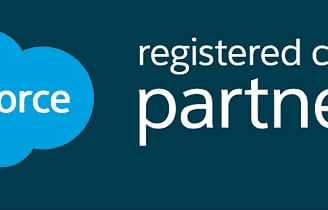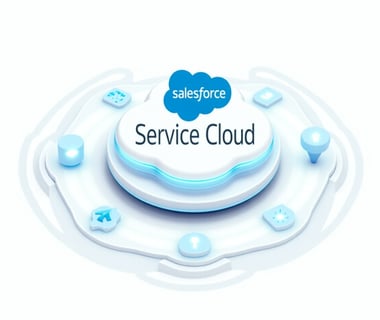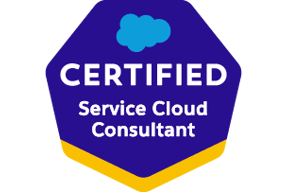Salesforce Service Cloud


Powering Exceptional Customer Service
Case Management:
Centralized case management for efficient tracking and resolution (e.g., case routing, escalation rules, service level agreements (SLAs))
Average case resolution time decreases by 26% with effective case management (Source: Salesforce Customer Success Metrics)
Example: Automatically escalate priority 1 cases unresolved after 4 hours to a specialized support team.
Omni-Channel Routing:
Unified console to handle customer interactions across all channels (phone, email, chat, social media)
Improves agent utilization by 32% through efficient channel distribution (Source: Salesforce ROI Study)
Example: Route chat requests to agents skilled in real-time problem solving and phone calls to agents with expertise in complex issues.
Knowledge Base:
Comprehensive repository of articles, FAQs, and solutions to empower agents and customers
Reduces average handle time by 18% by enabling agents to quickly find answers (Source: Salesforce Service Cloud Benchmarks)
Example: Create a knowledge article detailing troubleshooting steps for a common product issue, reducing agent time spent on repetitive inquiries.
Self-Service Portals:
Empower customers to find answers and resolve issues independently through online portals
Increases customer satisfaction by 20% by providing convenient self-help options (Source: Forrester Research)
Example: Enable customers to track order status, submit warranty claims, and update account information through a self-service portal.


AI-Powered Service: Einstein's Intelligence in Action
Einstein Case Classification:
Automatically categorize and prioritize cases using AI to accelerate resolution
Improves case accuracy by 35% with intelligent classification (Source: Salesforce Einstein Data)
Example: Automatically classify incoming cases based on keywords, sentiment analysis, and historical data to ensure they are routed to the appropriate agent.
Einstein Article Recommendations:
Suggest relevant knowledge articles to agents based on the context of the case
Reduces agent training time by 15% by providing on-demand access to relevant information (Source: Salesforce Training Impact Report)
Example: As an agent reviews a customer's case, Einstein automatically recommends relevant knowledge articles to help resolve the issue.
Einstein Chatbots:
Provide instant support and answers to common customer inquiries 24/7 through AI-powered chatbots
Reduces support costs by 30% by automating routine tasks (Source: Gartner Research)
Example: Implement a chatbot on your website to answer FAQs, provide basic troubleshooting steps, and escalate complex issues to a live agent.


Service Analytics: Data-Driven Insights for Continuous Improvement
Dashboards and Reports:
Gain real-time visibility into key service metrics, such as case volume, resolution time, and customer satisfaction
Improves decision-making by 40% by providing data-driven insights (Source: Nucleus Research)
Example: Create a dashboard to track key performance indicators (KPIs) such as average handle time, first call resolution rate, and customer satisfaction score (CSAT).
Performance Monitoring:
Identify areas for improvement and optimize service processes based on data analysis
Increases customer retention by 5% by proactively addressing customer issues (Source: Bain & Company)
Example: Analyze case data to identify common product defects and implement preventive maintenance programs to reduce future failures.
Predictive Analytics:
Use AI to forecast future service trends and proactively address potential issues
Reduces customer churn by 10% by anticipating and resolving customer concerns (Source: McKinsey & Company)
Example: Use predictive analytics to identify customers who are at risk of churn and proactively offer personalized support and incentives to retain them.
Tailoring Service Cloud to Your Unique Needs
AppExchange Integrations:
Extend Service Cloud functionality with pre-built integrations from the Salesforce AppExchange
Reduces integration costs by 30% compared to custom development (Source: Salesforce AppExchange ROI Study)
Example: Integrate Service Cloud with a third-party survey platform to automatically collect customer feedback after each interaction.
Apex and Visualforce Customization:
Develop custom code and user interfaces to tailor Service Cloud to your specific business requirements
Improves agent productivity by 20% through customized workflows (Source: Salesforce Customization Impact Report)
Example: Create a custom Visualforce page to display customer data from multiple systems in a single view, simplifying the agent's workflow.
Open APIs:
Integrate Service Cloud with other systems and applications using open APIs
Increases data accuracy by 15% through seamless data synchronization (Source: API Integration Benefits Study)
Example: Integrate Service Cloud with your accounting system to automatically update customer account information when invoices are paid.
Service Cloud Implementation: Maximize Your Investment
Start with a Clear Vision:
Define your goals and objectives for Service Cloud implementation and align them with your overall business strategy
Projects with clear goals are 50% more likely to succeed (Source: Project Management Institute)
Example: Reduce average handle time by 15% and increase customer satisfaction by 10% within the first year of Service Cloud implementation.
Invest in Training:
Provide comprehensive training to agents and administrators to ensure they can effectively use Service Cloud
Well-trained users are 30% more productive (Source: Association for Talent Development)
Example: Offer ongoing training sessions and certifications to keep agents up-to-date on the latest Service Cloud features and best practices.
Monitor and Optimize:
Continuously monitor service performance and make adjustments as needed to optimize your Service Cloud implementation
Regular optimization can improve ROI by 20% (Source: Gartner Research)
Example: Track key metrics, solicit feedback from agents and customers, and implement changes based on data analysis.
